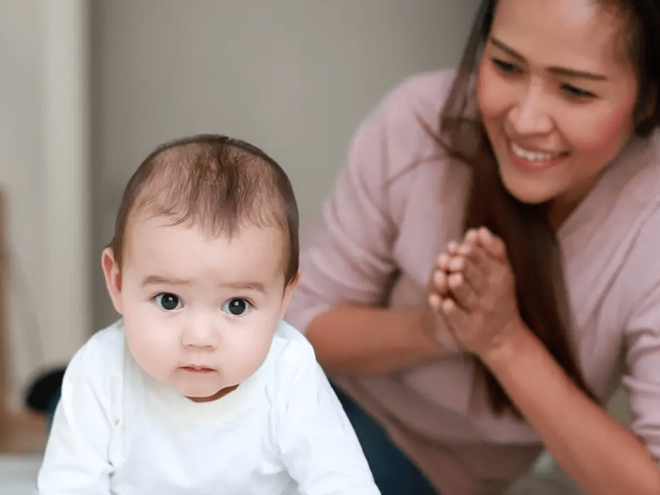
My Baby Hates Tummy Time. What Should I Do?
Every child's development occurs at its own pace, but while there's no hard and fast rule as to when they should achieve their growing-up milestones - tummy time is known to boost their gross motor skills. Read up on tips for when your little one seems to hate tummy time!
Tummy time refers to the time that a baby spends on his stomach while he’s awake and supervised.
There’s no hard and fast rule as to when exactly one should start tummy time, but the American Academy of Pediatrics’ recommendation to parents is to start it early on. Babies born full term with no health issues can start tummy time as soon as their first day home from the hospital or from birth; for as long as the newborn and mother are both awake and alert, and that the mother or another caregiver is there to supervise.
The length/duration of tummy time would vary depending upon the baby’s age. For newborns, aim for two to three sessions a day for three to five minutes at a time, ideally after a nap or diaper change and as part of playtime. It can be stopped or there could be a break in between if the baby is having a tough time. As he gets older and begins to enjoy his “workout,” gradually increase the number and duration of tummy time sessions; e.g. 20 to 30 minutes a day by the time he is 3 or 4 months old.
Tummy time has some major benefits, including:
- A means for the mother and the baby to bond
- Boosts gross motor skills including head control, rolling over, sitting upright; crawling and scooting which leads to walking
- Prevents plagiocephaly (or flat head syndrome)
- Alleviates gas pain
- Exposes baby to a different environment
At times, babies seem to hate tummy time. If this happens, what should the parents do? Here are some tips:
- Don’t stress and don’t give up;
- Take a couple of days or a week off and try again later;
- Shorten the sessions; space tummy time throughout the day to make the task a little more bearable for baby;
- Place yourself or a toy in reach for her to play with. Eventually your baby will enjoy tummy time and begin to enjoy play in this position.
Reference
About The Expert
DR. JOSELYN EUSEBIO, Developmental-Behavioral Pediatrician
Dr. Joselyn C. Alonzo-Eusebio is a graduate of Doctor of Medicine from the University of the East Ramon Magsaysay Memorial Medical Center. She had her Pediatric Residency Training in the same institution, after which, she pursued a fellowship in Developmental and Behavioral Pediatrics at UP-PGH. She had had further trainings in Developmental Pediatrics abroad (US and UK).
Dr. Eusebio is involved both in teaching and in clinical practice. For the academe, she’s currently an Associate Professor of the College of Medicine of UERMMMC, and Clinical Instructor at the New Era College of Medicine and St Luke’s College of Medicine. Dr. Eusebio holds various positions including the following: Chairman, Department of Pediatrics, UERMMMC; Head, Section of Developmental and Behavioral Pediatrics at National Children’s Hospital; Vice-President, Philippine Pediatric Society and the Perinatal Association of the Philippines.
She’s a much sought-after speaker in conferences, scientific symposia, lay fora, here and abroad, both in platforms and in media, most especially on the topic of child development and behavior.
SOURCES:
© 2013 American Academy of Pediatrics
The views and opinions expressed by the writer are his/her own, and does not state or reflect those of Wyeth Nutrition and its principals.









